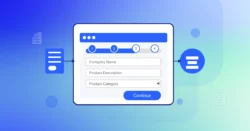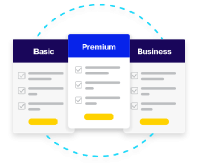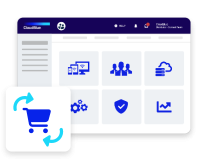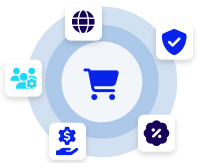Service revenue refers to the income a business earns by providing services rather than selling physical products.
For SaaS companies, this often includes activities like consulting fees, marketing services, or software setup and implementation. These activities generate service-based revenue, contributing to the overall financial health of the business.
In accounting, service revenue is recorded as an asset on the balance sheet. It increases a company’s equity by boosting income, while associated costs are categorized as liabilities.
Whether from recurring consulting fees or one-time implementation charges, service revenue plays a vital role in supporting operational expenses and driving growth.
Examples of Service Revenue in SaaS
For SaaS businesses, service-based revenue typically complements subscription income. A common example is software setup and implementation, where companies charge clients for customizing and onboarding their solution. These fees ensure clients can seamlessly integrate the software into their operations.
Marketing services are another source of service revenue, especially when SaaS companies provide tailored campaigns or support for customers using their platform. Consulting fees tied to strategy, training, or process improvement also fall under this category.
Non-operating revenue, while less common, can include income from activities like renting office space or earning interest, but it’s distinct from core services like software implementation or consulting.
Why Service Revenue Matters
Service revenue is more than just an account type in the books. It represents a company’s ability to diversify its income streams and deliver value beyond its core offerings. From an accounting perspective, recording service revenue accurately is crucial. It is classified as a credit entry, balancing against debits from liabilities or expenses.
On a balance sheet, service revenue is part of the larger picture that includes assets, equity, and liabilities. It not only supports short-term cash flow but also strengthens customer relationships by offering tailored, high-value solutions. This added layer of service can set a company apart in competitive markets.
For SaaS businesses, service-based revenue ensures steady income even during fluctuations in subscription sales. By focusing on activities like software setup or marketing services, businesses can maximize their impact while creating sustainable, long-term value for their customers.












